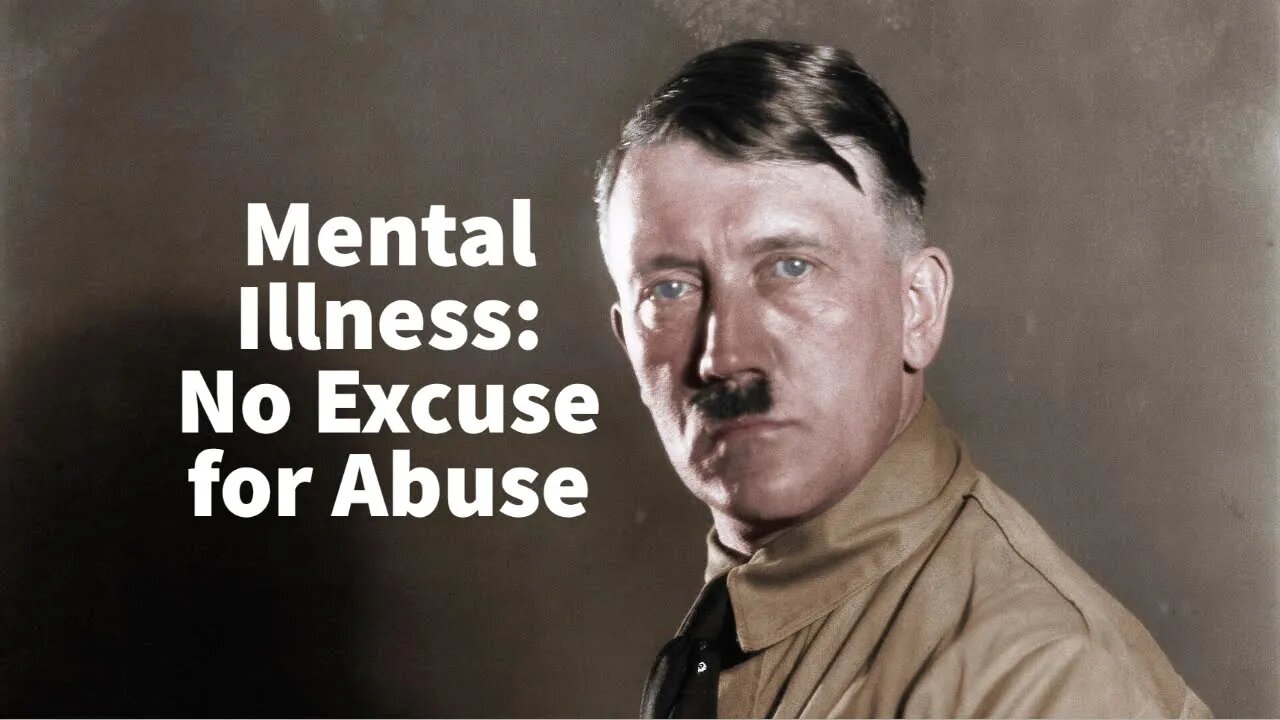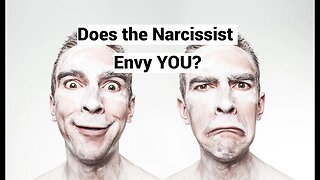Premium Only Content

Mental Illness: No Excuse for Abuse
Autoplastic defenses
Blaming oneself for the consequences and outcomes of one’s own choices and decisions as well as for the outcomes of the choices that others make and even for circumstances beyond one’s control.
A common type of defense in neuroses.
Alloplastic defenses
Blaming others for the predictable consequences and outcomes of your own choices and decisions.
A feature of cluster B disorders.
Examples of alloplastic defenses: “It is their fault, they made me do it”, “They should have been more careful or less gullible”.
Even characters flaws which are rarely associated with psychopathy and narcissism – actually are.
Example:
There are many people who people pleasers and other people who are emotionally dysregulated or delusional or paranoid or narcissistic or passive aggressive or depressive or anxious or …
But all these psychopathologies are often excuses or covers for psychopathic, immoral, antisocial, and narcissistic acts and misconduct. It is a unique combination of both alloplastic and autoplastic defenses.
“Poor me, I am actually the victim of my own proclivities, weaknesses, mental illnesses, and character flaws! People are leveraging and taking advantage of my frailties! I never do wrong! I am never to blame! I am never responsible for my actions! There are higher internal forces at work!”
The need to believe in the essential goodness of people, that the world is essentially just and structured is a bit naïve, of course. Another need is to not feel like a victim: we don’t want to feel stupid, that our judgment is wrong, to suspect that we misapprehend people, that we can and do fall in the hands of predators.
These needs result in a cognitive dissonance when people we have trusted and role models misbehave or betray us: a great unease, a sense of discomfort, an inner conflict.
To allay this, we deceive ourselves in order to mitigate, ameliorate, and overcome this internal upset when we are confronted with the truth. We lie to ourselves, reframe.
So we say: "She is flawed, weak, human, means well, mentally ill, and so in need of love!” or “She is a people pleaser, emotionally dysregulated, depressed, anxious, delusional, or labile”.
Dissonance gone. In reality though, she did victimize you, damage you, prey on you. But she did not mean to, it is not her fault. It was stronger than her, you see.
This is coupled with grandiose autoplastic defenses, the tendency to blame yourself for anything that goes wrong because you need to feel in control: if she acted immorally, it was all my fault, I made her do it, I caused it to happen, I am not the victim, I am the victimizer and the abuser. So, everything is fine: I am the one who talk advantage of the character flaws and mental illness of others, reducing any hero to a common zero. I am still safe and in charge.
Find and Buy MOST of my BOOKS and eBOOKS in my Amazon Store: https://www.amazon.com/stores/page/60F8EC8A-5812-4007-9F2C-DFA02EA713B3
-
 11:25
11:25
Narcissism with Sam Vaknin
1 year ago $0.19 earnedDoes the Narcissist Envy YOU?
3837 -
 0:11
0:11
RedpillUSAPatriots
1 year agoIt's a Mental Illness
1.57K11 -
 0:15
0:15
RedPillAnons
1 year agoMental illness
89 -
 1:00
1:00
RedPillAnons
1 year agoMental Illness
37 -
 0:40
0:40
KURTBARLOW
1 year agoMental Illness Programming
9 -
 34:59
34:59
The Only You and Solo Tu Podcasts
1 year agoMental Illness Myths and Facts
3 -
 1:29
1:29
MichieMe315
1 year agoMental Illness
641 -
 2:42
2:42
xMoonBeams
1 year agoMental Illness?
142 -
 0:12
0:12
The 45 Party
1 year agoLiberal Mental Illness
20010 -
 0:51
0:51
CanadianGirlRumble
1 year agoMental illness contagion
853